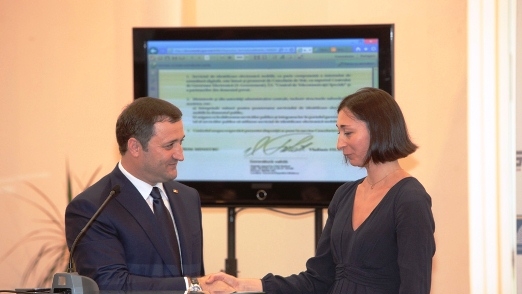Like many former Soviet Republics, Moldova is struggling with the legacy of a vast bureaucracy. But in a new push, the government is working toward a more open, less cumbersome bureaucracy. Modern technology and the country’s decision to move closer to the European Union mean changes designed to empower citizens, improve government services and help businesses grow.
About four years ago, the government began work on a breakthrough Governance e-Transformation project. It gives Moldovans around-the-clock access to government documents and public services. And by creating an electronic trail, it ensures transparent decision-making. It also results in speedier, more efficient service.
Vitalie Coceban is the Executive Director of the state-owned business FiscServInform, which develops and installs new technologies and e-services for the state tax service. He says one of the goals of the project is to create a digitally advanced society. “This transformation helps in shifting from old patterns that existed in our society in the past, based purely on administration, to a new pattern, which is now based on providing better services to people,” Coceban says.


